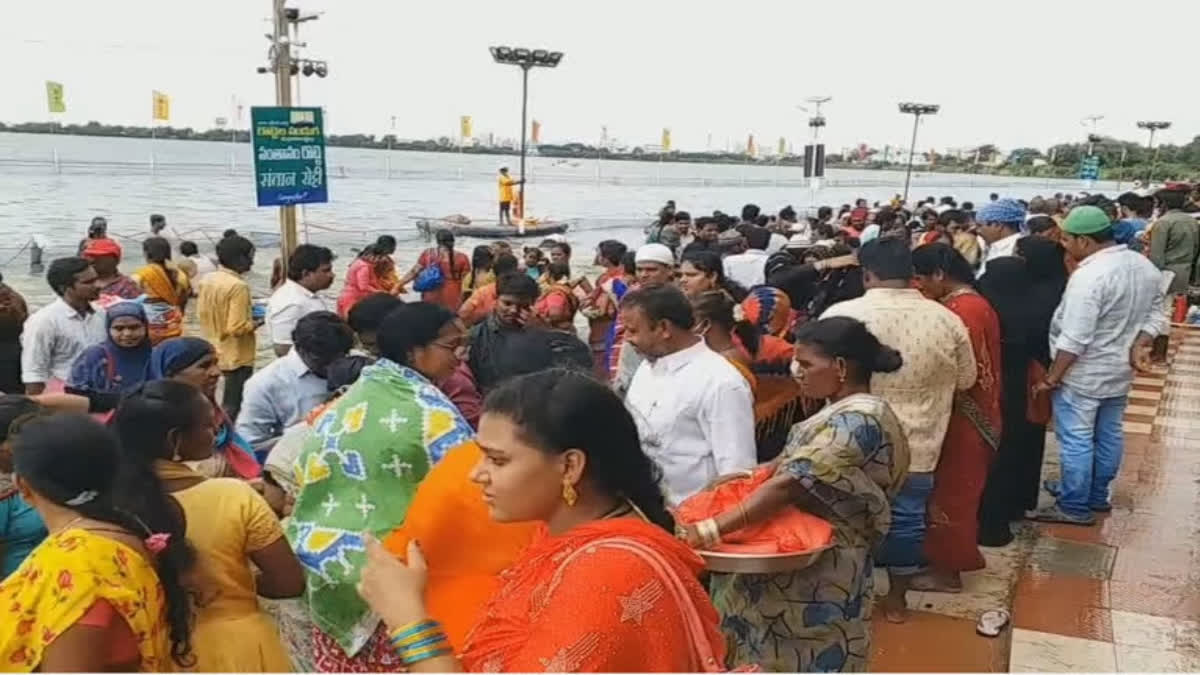Nellore: In the heart of Andhra Pradesh, nestled amidst the beauty of nature's embrace, lies a city so enchanting, it casts a spell on the hearts of those who venture near. Welcome to Nellore, a place where the air is imbued with magic, and where the ethereal "Nellore Bread Festival (Rottela Pandaga)" unfolds its wondrous wings, captivating the souls of countless devotees from far and wide. This extraordinary event, steeped in history and profound beliefs, transcends the boundaries of faith and culture, uniting all who gather to partake in its celestial offerings.
Many moons ago, a tale of devotion and destiny began to weave its tapestry in the sacred soil of Nellore. It was a time when twelve noble souls, fervent followers of the venerable Prophet Muhammad, graced the serene region with their presence. Their mission, divinely inspired, was to impart the timeless principles of unwavering devotion to the people they encountered. Yet, the cosmos had scripted a different narrative, one of bravery and martyrdom. The valiant twelve met their heroic end during a sacred battle, earning the revered title of Barashahids, etching their names into the annals of Nellore's storied past.
In a poignant procession, noble steeds carried the bodies of the Barashahids to the tranquil banks of Nellore Lake, a journey spanning 35 kilometers from the battlefield. The still waters of the lake cradled their earthly remains, forever intertwining their legacy with the very essence of Nellore's being. It was upon these hallowed grounds, near the Swarnala Pond, that devotees gathered to seek blessings and fulfil their deepest desires through a cherished tradition symbolized by bread.
In the bygone days of the Nawabs of Arcot, a humble washerman and his wife resided in the vicinity of the Swarnala Pond. Fate had a celestial dream in store for the washerman's wife, a dream woven with moonlit threads under the shimmering night sky. In this divine vision, the Barashahids themselves appeared, bestowing a message upon her. They revealed that the Nawab of Arcot's beloved wife was ailing and beseeched the washerman's wife to apply clay from their sacred graves upon the Nawab's wife's forehead, a remedy for her affliction.
Also read:J&K administration allows Muharram procession after three decades
Filled with awe and curiosity, the washerman's wife shared this celestial revelation with her husband, and together, they journeyed to the village, where their eyes met the sight of the Nawab's ailing consort. Struck by the realization that their dream held a glimmer of truth, the couple wasted no time in conveying the divine guidance to the Nawab's courtiers. The providential advice reached the Nawab, who, without hesitation, acted upon it. To the tombs near the golden pond he went, accompanied by his ailing wife, to offer prayers and gratitude to the noble Barashahids, whose intercession had brought about a miraculous healing.
In an act of profound reverence and thanksgiving, the Nawab and his wife shared bread with the devoted souls who had congregated at the sacred site. This seemingly simple gesture, born from the purity of their hearts, gave birth to a tradition that would span the sands of time—a tradition of exchanging bread, symbolizing the manifestation of one's heartfelt desires and dreams.
As the celestial wheels of time continued their dance, the Nellore Bread Festival blossomed into a grand spectacle of devotion and unity, celebrated with unparalleled grandeur. Originally observed for three days during the sacred month of Moharram, the festival's allure now spanned five days, drawing millions of souls into its embrace. What once began as a sacred ritual for a specific faith now beckoned people from all walks of life, transcending religious boundaries and embracing humanity in its entirety.
